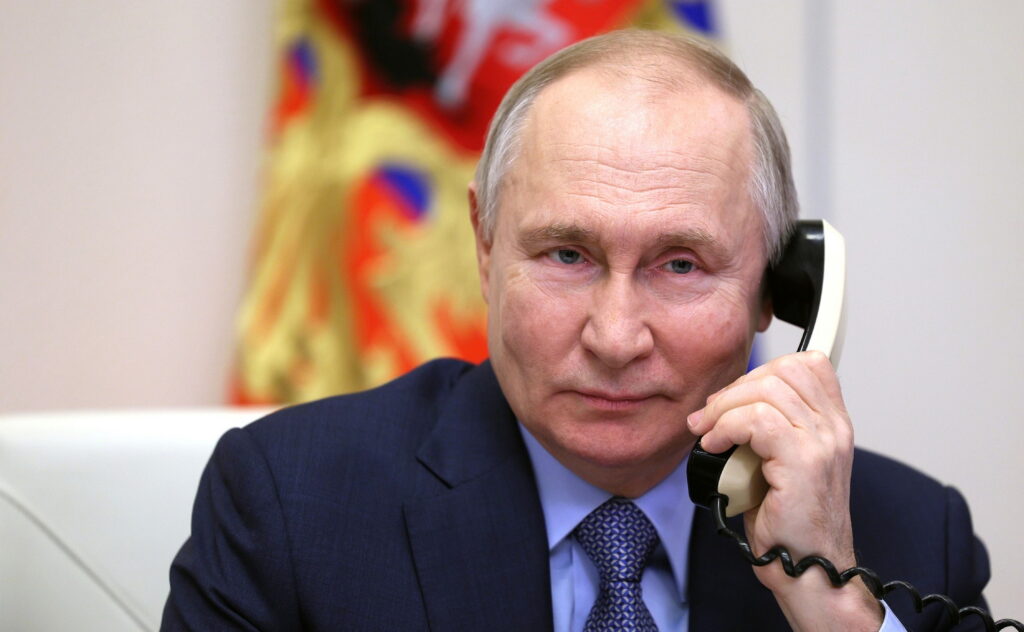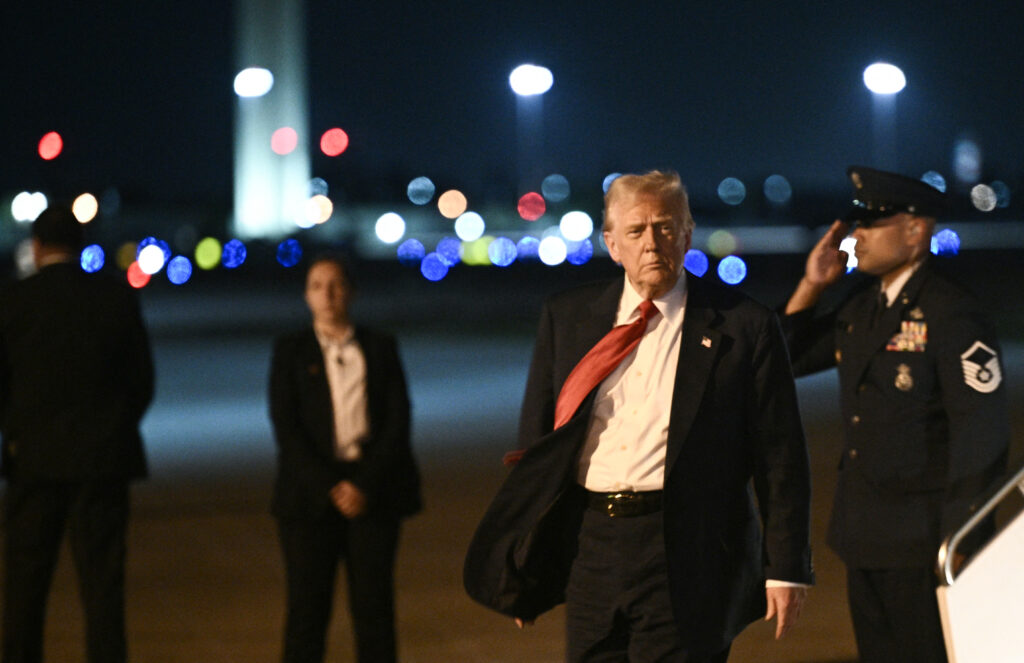Brussels – Things are looking grim for Ukraine. In recent days, the negotiation process has seemed to move along two parallel tracks, clearly distinct from each other. On the one hand, the United States is openly dialoging with Russia. On the other, Ukraine and its European allies maintain more uncompromising positions but have a hard time finding a definitive falling point.
Following the substantial stalemate in negotiations that followed the busted flush of Riyadh talks, Donald Trump has now imparted yet another acceleration to negotiations between Russia and Ukraine. The impression, however, is that the former Soviet republic has been backed into a corner by what should be its most powerful ally, which instead appears determined to close the issue as quickly as possible. Even if that means effectively giving Moscow the upper hand.
Back and forth between Moscow and Washington.
When White House special envoy Steve Witkoff flew to Russia to meet Vladimir Putin last week, he reportedly obtained a commitment from the Kremlin’s tenant to stop the advance of his troops, effectively freezing the front line. Specifically, the Russian president would offer to “cede” to Kyiv the areas still under Ukrainian control in the four partially occupied oblasts (Luhansk, Donetsk, Zaporizhzhia, and Kherson), giving up completing their military conquest. That is, renouncing territories it does not have and for which three years of war were not enough to obtain.

An offer that has apparently been deemed satisfactory by the star-studded administration. For days, both the president and his number two, J.D. Vance, have been threatening to withdraw Washington from mediation if the two belligerents do not reach an agreement quickly. “We have made a very explicit proposal to both the Russians and the Ukrainians,” the vice president reiterated yesterday (April 23), “and it is time for them to say “yes” to us or the United States will abandon this process.”
Just the day before yesterday, Putin declared himself available to negotiate directly with the other side, a change in tone from the rigid positions he had maintained so far, which echoed a similar opening by Ukrainian President Volodymyr Zelensky. It is unclear, however, if or when the two leaders will be able to meet in person.
The Trump plan (which Kyiv doesn’t like)
However, the proposal Vance refers to is rather problematic, to put it mildly. So much so that the Ukrainian leadership denies having received a formal notification from the White House. Zelensky dismissed the journalistic rumours circulated in recent hours as “signals, ideas, discussions,” but nothing official. A diplomatic way to stall without triggering another unhinged reaction from his irascible U.S. counterpart, one would say. The reality is that there are several points of the “Trump plan” that are inadmissible to Kyiv.
The New York tycoon’s stringent “final offer” first and foremost involves the de jure recognition of the Crimean Peninsula as part of the Russian Federation, 11 years after its unilateral annexation in February 2014. A second element is the de facto recognition of Moscow’s control over almost all of Luhansk and the occupied portions of the other three regions mentioned earlier, which Russia considers its own territory following the September 2022 referendum farce. Then there is the promise that Kyiv will never join NATO, while the door to joining the European Union would remain open.
The draft, which seems decidedly skewed in Russia’s favour, also mentions the removal of all restrictive measures imposed against the Kremlin since 2014. However, there would seem to be some unease within the U.S. administration on this point. A point that remains politically controversial and presents some significant legal complexities, such as those related to the fact that many sanctions were not imposed unilaterally by Washington but at the G7 level.

The concessions Ukraine would get, however, are more limited. Kyiv would be assured a “robust security guarantee” from Europeans and other countries, although the document remains vague on the size and rules of engagement of that contingent. The most natural reference would be to the so-called “reassurance force” that Paris and London are trying to assemble with the coalition of the willing, but the only certainty for now is that U.S. troops would not be involved.
Trump appears to be intent on taking over the operation of the Zaporizhzhia nuclear power plant, the largest in Europe, which is currently occupied by the Russians, and selling the electricity produced by the plant to both Kyiv and Moscow. The text then mentions the infamous accord on critical Ukrainian raw materials, which has not yet been finalised, and finally proposes to allow free navigation along the Dnipro River, which currently marks part of the frontline between the two armies.
Reactions and counter-reactions
What is also certain is that Zelensky did not like Trump’s plan. Especially the passage over the Black Sea peninsula, considered by Kyiv an insurmountable red line: “Ukraine will not recognise the occupation of Crimea,” the president reiterated for the umpteenth time, explaining that “it is our territory, the territory of the people of Ukraine, there is nothing to discuss.” Cold reception also regarding the easing of the sanctions regime against Moscow.
The response from the Ukrainian counterpart irritated the White House. In a post shared yesterday on his social Truth, the latter branded as “very damaging” Kyiv’s position on Crimea since, he says, the peninsula “was lost years ago” when it was “handed over” to the Russians by his predecessor Barack Obama. “It is inflammatory statements like Zelensky’s that make it so difficult to resolve this war,” the tycoon continued, adding that the choice facing Kyiv is now between “having peace” and “fighting for another three years before losing the whole country.”
“We are very close to an agreement,” he concluded, “but the man whith no cards to play should finally get moving,” echoing his own disparaging words used against Zelensky during the clash in the Oval Office in late February. The consequences also reverberated in the diplomatic sphere. Yesterday morning, talks scheduled in London between the foreign ministers of the United States, Ukraine, the United Kingdom, France, and Germany were cancelled after the U.S. Secretary of State, Marco Rubio, and Witkoff dropped out at the last minute. A consultation still took place, but at a lower, “technical” level.
Separate tracks?
In the Old Continent, White House activism is not welcome. In a further plastic representation of the sidereal distance between the two sides of the Atlantic, the Elysée Palace has responded to the “Trump plan” by reiterating that any negotiated solution to the Russian-Ukrainian crisis cannot disregard the survival of the territorial integrity of the former Soviet republic, effectively closing the door to hypotheses of recognising Crimea or other regions as part of the Federation.
The EU executive also shares the position of Paris. “The EU will never recognise Crimea as Russian,” said the 12-star diplomacy chief, Kaja Kallas, who denounced Moscow’s recent airstrike on Kyiv as “a mockery” of efforts to achieve peace. From the Berlaymont, it is reiterated that “Ukraine is the only one who can decide on the conditions for peace” and that “it is crucial” to defend its “independence, territorial integrity, and sovereignty.”
As for the sanctions chapter, the Twenty-Seven do not intend to loosen theirs, and indeed they are working on a 17th package of restrictive measures. A further clampdown on European companies entering new energy contracts with Russia is expected in early May. But the real problem is that the EU is not calling any shots in the diplomatic game to try to end hostilities in the former Soviet republic, blocked by the divergent positions of member states. Many statements and some financial allocations continue to come from Brussels, but little else.

For that matter, proof that the political and strategic tracks on which the EU and the U.S. move have now completely separated also comes from the news that Witkoff is again on his way to Moscow, to speak with Putin tomorrow (April 25) for the fourth time in three months. Trump’s special envoy candidly stated that he is developing “a friendship” with the Russian president and is among the leading advocates of economic and diplomatic normalisation between the two countries.
In the meantime, NATO Secretary General Mark Rutte is now in Washington, where he is meeting with Rubio, Pentagon chief Pete Hegseth and White House National Security Adviser Michael Waltz. On the other hand, there are no meetings on the agenda for the time being between EU Commission President Ursula von der Leyen and President Trump, both of whom will be in Rome next Saturday (April 26) for the funeral of Pope Francis, along with delegations from almost every country in the world.
English version by the Translation Service of Withub







